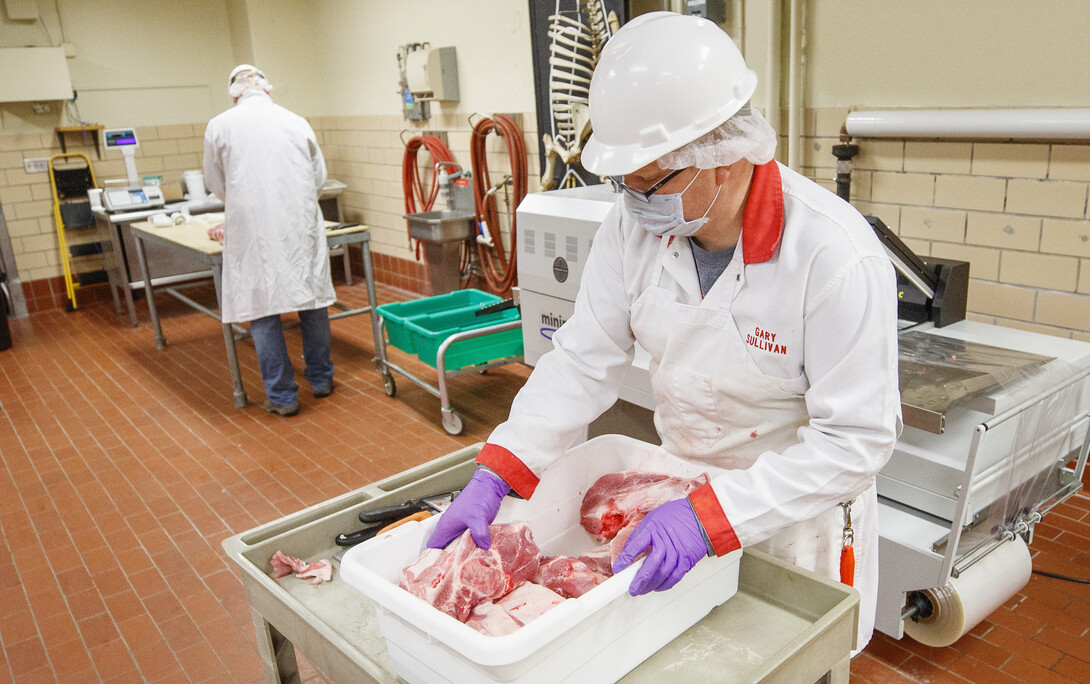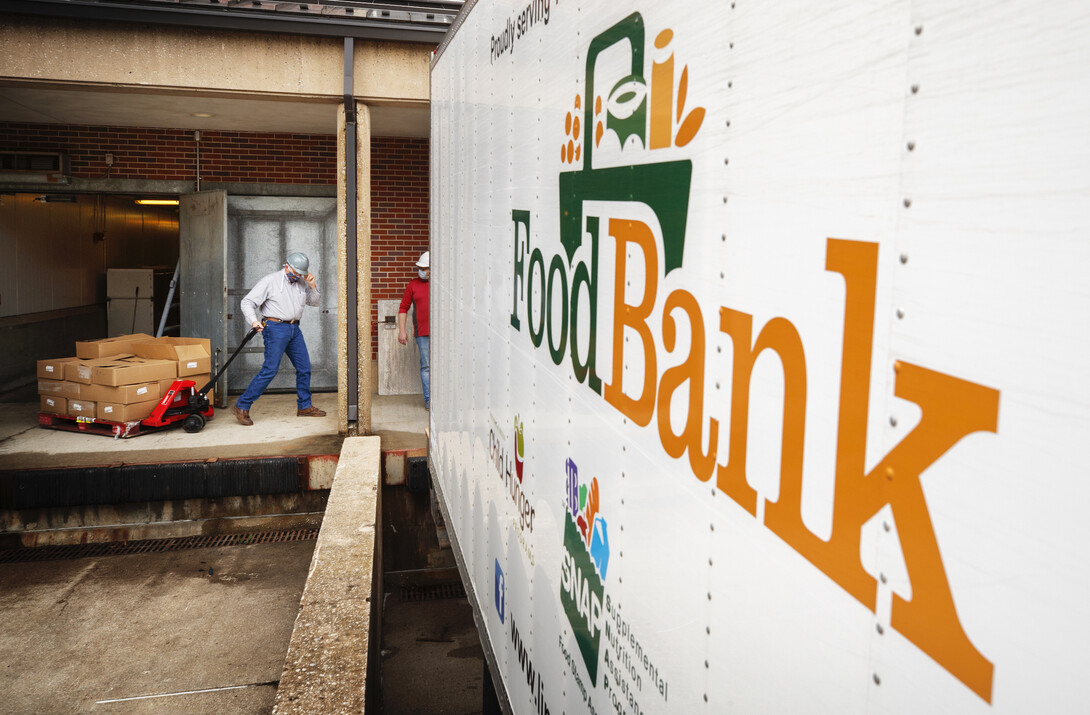
On a rainy afternoon in late May, the Food Bank of Lincoln paid a visit to the University of Nebraska–Lincoln Animal Science Complex and loaded up 1,500 pounds of fresh pork onto a truck for distribution to Nebraskans in need across the southeastern part of the state.
The pork, donated by pig farmer and University of Nebraska–Lincoln animal science alumnus Bill Luckey, was the result of generosity, ingenuity, collaboration and a spirit of Nebraskans helping Nebraskans among the state’s pork producers, the Food Bank of Lincoln and the University of Nebraska–Lincoln.
A week prior, Luckey delivered 12 pigs to University of Nebraska–Lincoln’s Loeffel Meat Lab. Luckey’s operation near Columbus, like many swine operations throughout Nebraska and across the country, was hit hard by COVID-19. Outbreaks of COVID-19 among workers at some large processing plants diminished processing capacity at some facilities and temporarily closed others. With large plants’ capacity reduced, small, locally-owned meat processors saw demand spike and their schedules filled into fall and even beyond. With so much stress on processors, pork producers like Luckey found it difficult to sell their pigs; some farmers made the excruciating decision to euthanize animals.
Luckey did not want to do that. He had worked at the Loeffel Meat Lab in the University of Nebraska–Lincoln’s Animal Science Department as an undergrad years before, and he wondered if perhaps his old employer would be able to process some pigs so they wouldn’t go to waste. Luckey knew many Nebraskans were struggling to put food on the table. Surely, they would appreciate fresh, Nebraska-grown pork.
Luckey made some phone calls to people he knew at the university to see if there was some way to make use of his pigs. Unbeknownst to Luckey, a group of faculty and staff, including Swine Extension Specialist Benny Mote and associate professor of meat science Gary Sullivan, were wondering the same thing. Soon, the Nebraska Pork Producers Association joined the conversation, too. Within a few days, the Pork Cares Campaign, which allows pork producers to donate pigs to Nebraska food banks, with the university taking care of the processing, was born.
“The Pork Cares Campaign is the epitome of the Nebraska spirit,” said Mote. “Producers are trying to help those in need regardless of how much help they might need themselves. Those of us at the University that are helping with the harvest are humbled to be part of this campaign.”
Next came the logistics. Loeffel Meat Lab employees had to get special permission to operate when most campus buildings were closed due to COVID-19. The lab was able to obtain hand sanitizer made by University of Nebraska–Lincoln’s Food Processing Center. They coordinated with Luckey to schedule the drop-off, and with the Food Bank of Lincoln to schedule a pick-up.
Through a combination of hard work, perseverance and luck, everything fell into place.

The same day the Food Bank of Lincoln picked up the first 1,500 pounds of donated pork, Luckey dropped off another 12 pigs for processing. This time, the pork will be donated to Food Bank of the Heartland in Omaha. The Nebraska Pork Producers Association set up an online donation platform to help cover the costs associated with processing, and they’ve already raised nearly enough money to keep the program going for a third week. If they are able to raise enough money, they’ll also be able to pay pig farmers who donate animals to the program a small fee.
Processors are still backed up, and pig farmers are still having trouble selling their animals, Luckey said. He thinks it will be a few months at least until things return to normal. In the meantime, he said, he hopes the Pork Cares Program carries on.
“As long as there is a need, it would great to keep this program going,” he said. “We’re still in a spot where we have a lot of pigs.”
For more information on the Pork Cares Campaign or to make a donation to cover the cost of processing, visit the Nebraska pork website.








